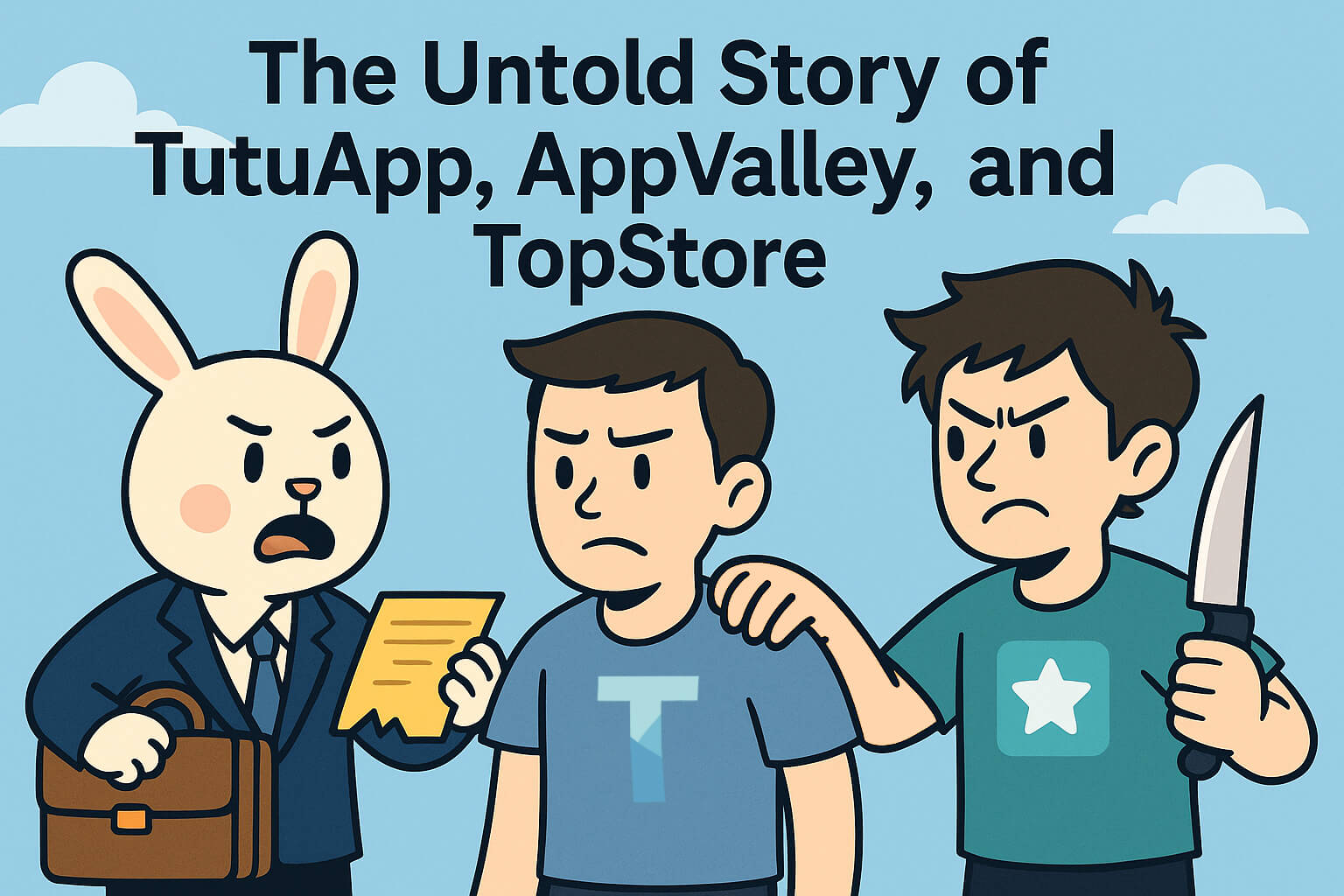
Introduction: From a Small Assistant to a Witness of a Decade of Upheaval
In the early days, I joined the TutuApp team merely as an assistant. The iOS third-party app ecosystem wasn’t yet booming—my work focused on acquiring and managing developer accounts and handling some media communications. Everything changed in June 2016, when a user asked whether Pokémon GO could be played in China. Since the game wasn’t officially available in the region, TutuApp quickly developed a tweaked version with virtual GPS support. Overnight, it exploded in popularity across China, givi...
The Pokémon GO Explosion and Rising Ambitions
The success of the modified Pokémon GO didn’t stop at China’s borders. International users also caught on quickly, and TutuApp’s daily active users surged from 20,000 to over 500,000. With that explosive growth, the founder’s ambitions grew as well. In a bid to scale further, an executive with a polished resume was brought in as Vice President to lead the TutuApp project.
But that decision proved disastrous. The new VP lacked any real understanding of the product and spent most of his time giving flashy presentations. He gradually pushed out team members who had been through the Pokémon GO success wave and replaced them with outsiders or inexperienced newcomers. As a result, the core team fractured. Three Chinese team members eventually reached out to two American developers and decided to launch a new venture—AppValley.
The Birth of AppValley: From Trial to Triumph
AppValley started smoothly. With the experience and resources carried over from TutuApp, development began in May 2017, and the platform launched by August. By October, it was already profitable. The team was small—just four people at first: three Chinese founders and one American high school student acting as the initial developer. Realizing the lack of technical firepower, a second American developer was brought in as a co-founder.
In the beginning, all infrastructure costs—developer accounts, servers, certificates—were paid by the Chinese side. Therefore, the revenue share was initially set at 8:2. However, the American side repeatedly requested to increase their share. The first request led to a 7:3 split, which the Chinese side reluctantly accepted. Not long after, they asked again, resulting in a 6:4 ratio. Then, within a few months, they demanded a 5:5 split.
These repeated demands for greater shares—each time shortly after receiving a previous concession—revealed a pattern of greed and sowed deep mistrust. The Chinese side finally drew the line and rejected the request. Then came the betrayal.
The 2019 Betrayal: A Bitter Split
During Chinese New Year 2019, when most of the Chinese team was on break, the American developers secretly migrated all of AppValley’s data to their own servers. They wiped the original backend clean and attempted to seize control of the Twitter and Google accounts. AppValley effectively went dark overnight.
Of the three original Chinese co-founders, one chose to leave the team altogether. The remaining two decided to cancel their holidays and rebuild AppValley from scratch. Fortunately, the Americans failed to take over the domain—appvalley.vip—which proved to be a lifeline. Although a large chunk of users was lost, the team managed to relaunch a functional version after a few months.
However, the sabotage didn’t stop there. The U.S. side, enraged by their failure to fully hijack the brand, began filing malicious trademark claims and issuing takedown requests, severely limiting visibility of the revived app store on Google. This made it increasingly difficult to acquire new users.
The Industry Cracks and an Alliance is Born
By 2020, Apple tightened its enterprise certificate policies, making the once-dominant signing method unstable. The entire third-party app market faced a downturn. It became clear that sustaining operations solo was no longer feasible. In early 2024, the Chinese AppValley team accepted an offer from TopStore to merge and co-manage the platform.
Thus, appvalley.vip became part of the TopStore ecosystem. Though far from its peak, the team remains active, still serving users and resisting Apple’s ever-tightening restrictions. Ironically, the American side—despite their underhanded tactics—eventually folded. Their version of AppValley was abandoned, though they still occasionally attempt to tarnish TopStore’s name online.
Conclusion: The Legacy of a Battle-Tested Brand
This isn’t just a story of market competition. It’s a decade-long tale of growth, betrayal, survival, and evolution. It shows how platform politics, technical constraints, and human dynamics collide in the volatile world of iOS third-party app distribution. Through it all, we’re still here—maybe smaller, but stronger than ever in spirit.